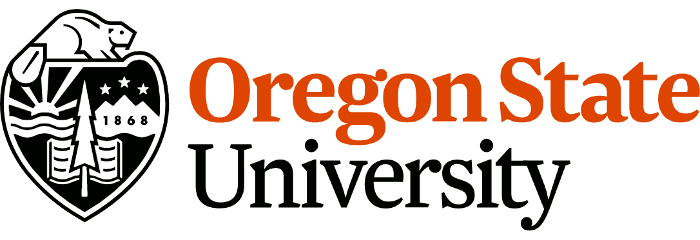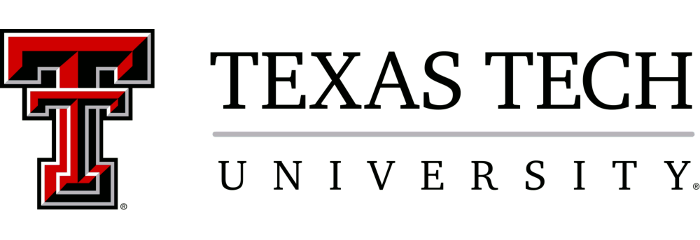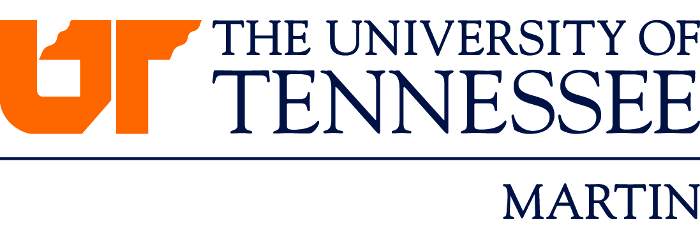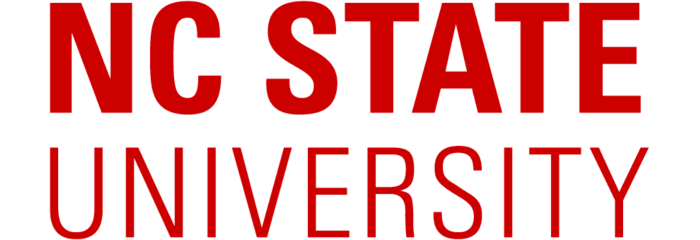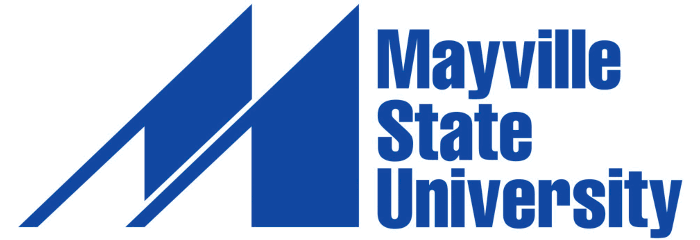2025 Best Online Agriculture Degrees
An online degree in agriculture offers a flexible pathway to understanding modern agricultural practices, environmental sustainability, and agribusiness management. These programs typically cover subjects such as soil science, crop production, and resource conservation. We've highlighted several online bachelor's degrees in agriculture to consider.
Key Takeaways:
- Utah State University's program takes the top spot with reported graduate earnings of $50,220.
- Arizona State University, Online stands out as one of the more popular online schools on our list, with an impressive online enrollment of over 50,000 students.
- There are several options available for students interested in a scientific approach to agriculture or a more business-focused degree in agriculture.
Our ranking methodology compares real-world alumni outcomes from online college programs by evaluating alumni salaries, assigning each program a proprietary Salary Score that reflects its position relative to other institutions. Schools with high Salary Scores are ranked prominently, with additional consideration given to schools with significant online enrollment, reflecting both student satisfaction and program popularity. For a detailed explanation, please visit our methodology.
2025 Best Online Agriculture Degrees
| Rank | School | Salary Score | Median Earnings | Online Enrollment |
|---|---|---|---|---|
| Utah State University | $50,220 | 4,521 | ||
| Colorado State University - Fort Collins | B | $49,102 | 3,726 | |
| Oregon State University | B- | $47,660 | 11,727 | |
| Texas A&M University - Commerce | B- | $47,292 | 4,475 | |
| Texas Tech University | B- | $46,765 | 4,572 | |
| Arizona State University, Online | N/A | N/A | 50,637 | |
| Unity College | N/A | N/A | 3,537 | |
| University of Minnesota - Online | N/A | $36,625 | 2,003 | |
| SUNY College of Technology at Canton | N/A | N/A | 1,318 | |
| Murray State University | N/A | $40,315 | 1,048 |
2025 Best Online Agriculture Degrees - Program Details
#1
- Salary Score: B
- Median Earnings: $50,220
- Online Enrollment: 4,521 enrolled
- Annual Tuition: $24,802
Online degree: Bachelor of Science in Agribusiness
Why we like them: Utah State University is a top choice due to its impressive online enrollment figures. Being in the top 12% of schools for online enrollment, the university provides a robust online learning environment, demonstrating its strong commitment to virtual education. Furthermore, with an overall recommendation rate of 98%, USU showcases a high level of satisfaction among online learners. This program delves into various subjects, such as agricultural economics, principles of management information systems, and regional economics. It offers a considerable breadth of course topics including commodity futures and options trading, agribusiness sales and marketing, and agricultural law, which prepare you for a diverse range of careers in agribusiness. With career opportunities ranging from manager positions in the agribusiness sector to roles in commodity trading, the program is designed to provide you with a strong foundation in business applicable in various fields. Students can expect to pay around $394 per credit.
Key Metrics:
- Salary Score: B
- Median Earnings: $50,220
- Financial Aid Recipients: 91%
- Avg. Aid Package: $9,808
- Avg. Graduation Rate: 48%
- Retention Rate: 74%
- Recommend Rate: 98%
- School Type: Nonprofit (Public)
#2
- Salary Score: B
- Median Earnings: $49,102
- Online Enrollment: 3,726 enrolled
- Annual Tuition: $32,734
Online degree: Bachelor of Science in Agricultural Business
Why we like them: CSU's ranking is bolstered by its earnings outcomes; graduates from its Agricultural Business program report median earnings of $49,102, placing the university in the top 44% for earnings, a compelling metric for prospective students concerned with return on investment. Coupling this with a robust retention rate of 86%, CSU exhibits a strong commitment to supporting online learners through to the completion of their studies. We also consider CSU's online enrollment noteworthy, as it ranks in the top 27% nationally, indicating its significance as a leader in online education. This program has a versatile curriculum focusing on key management skills used in small- and medium-sized agricultural enterprises. The 120-credit program spans topics from marketing and finance to agricultural law and agricultural science, covering areas like animal sciences and horticulture. Students can tailor their experiences by choosing from over a dozen minors, including Business Administration or Global and Environmental Sustainability.
Key Metrics:
- Salary Score: B
- Median Earnings: $49,102
- Financial Aid Recipients: 84%
- Avg. Aid Package: $10,727
- Avg. Graduation Rate: 67%
- Retention Rate: 86%
- Recommend Rate: 87%
- School Type: Nonprofit (Public)
#3
- Salary Score: B-
- Median Earnings: $47,660
- Online Enrollment: 11,727 enrolled
- Annual Tuition: $33,439
Online degree: Bachelor of Science in Agricultural Sciences
Why we like them: OSU's commendable rank is largely due to its strong median earnings of approximately $47,660 for graduates, placing it solidly in the top half compared to other institutions. Coupled with impressive online enrollment figures—11,727 students, which ranks in the top 2%—this speaks to the university's broad reach and strong appeal among online learners. We also value its high retention rate of 87%, reflecting a supportive and engaging learning environment conducive to your academic success. OSU's program includes various specializations such as animal science, crop and soil science, and agricultural business management, allowing you to focus your studies. This online degree is designed for asynchronous learning, enabling you to complete coursework at your own pace, with full online support from faculty and advisors. These elements ensure that you not only gain fundamental agricultural knowledge but also practical skills ready to be applied in diverse fields.
Key Metrics:
- Salary Score: B-
- Median Earnings: $47,660
- Financial Aid Recipients: 91%
- Avg. Aid Package: $9,260
- Avg. Graduation Rate: 70%
- Retention Rate: 87%
- Recommend Rate: 82%
- School Type: Nonprofit (Public)
#4
- Salary Score: B-
- Median Earnings: $47,292
- Online Enrollment: 4,475 enrolled
- Annual Tuition: $22,266
Online degree: Bachelor of Science in Agribusiness
Why we like them: Graduates report median earnings of $47,292, placing it in the top 51% compared to its peers. Complementing this, TAMUC also boasts a robust online enrollment of 4,475 students, positioning it amongst the top 19% of institutions with the highest online participation. This bachelor's degree is a comprehensive online program that can also be undertaken in a hybrid format, offering substantial flexibility. The curriculum offers opportunities to study different aspects of agribusiness, from finance to soil science. Some courses include Introduction to Horticulture, Agricultural Finance, and Farm Management. You also take a farm management lab that requires on-site farm experience and an agribusiness internship. With this training, you can work with agriculture distribution, production, and processing companies.
Key Metrics:
- Salary Score: B-
- Median Earnings: $47,292
- Financial Aid Recipients: 100%
- Avg. Aid Package: $9,983
- Avg. Graduation Rate: 43%
- Retention Rate: 65%
- Recommend Rate: 84%
- School Type: Nonprofit (Public)
#5
- Salary Score: B-
- Median Earnings: $46,765
- Online Enrollment: 4,572 enrolled
- Annual Tuition: $24,122
Online degree: Bachelor of Science in Plant and Soil Science
Why we like them: Texas Tech University distinguishes itself with a strong online presence, having an online enrollment of 4,572, positioning it in the top 21% of universities with the highest number of online learners. Additionally, TTU showcases an impressive recommendation rate of 91%, reflecting a high level of satisfaction among its students. The bachelor's degree requires 120 credit hours. It provides a comprehensive foundation for careers in various agricultural domains, including agronomy, horticulture, and soil management. You can focus on concentrations such as Crop Science, Horticulture, Soil and Water, and Viticulture and Enology, offering diverse career pathways. The program is delivered online, though certain courses or activities might necessitate a visit to the main campus or regional sites.
Key Metrics:
- Salary Score: B-
- Median Earnings: $46,765
- Financial Aid Recipients: 88%
- Avg. Aid Package: $9,359
- Avg. Graduation Rate: 64%
- Retention Rate: 86%
- Recommend Rate: 91%
- School Type: Nonprofit (Public)
#6
- Salary Score: N/A
- Median Earnings: N/A
- Online Enrollment: 50,637 enrolled
- Annual Tuition: $30,592
Online degree: Bachelor of Science in Sustainable Food Systems
Why we like them: ASU excels in online education, notable for its extensive online enrollment of over 50,000 students, positioning the university among the elite in virtual learning environments worldwide. We recognize this achievement alongside an admirable retention rate of 85%, indicating strong student satisfaction and continued engagement in the program. This degree provides an interdisciplinary understanding essential for addressing the global sustainability crisis. The program requires the completion of 120 credits spread across 31 classes, each lasting 7.5 weeks. The curriculum explores the interplay of food, policy, economic opportunity, natural resources, and social equity. ASU collaborates with its School of Sustainability, College of Health Solutions, and Morrison School of Agribusiness, offering concentrations in areas such as business innovation, public health, policy, and global engagement.
Key Metrics:
- Salary Score: N/A
- Median Earnings: N/A
- Financial Aid Recipients: 93%
- Avg. Aid Package: $12,381
- Avg. Graduation Rate: 66%
- Retention Rate: 85%
- Recommend Rate: 90%
- School Type: Nonprofit (Public)
#7
- Salary Score: N/A
- Median Earnings: N/A
- Online Enrollment: 3,537 enrolled
- Annual Tuition: $12,640
Online degree: Bachelor of Science in Regenerative Agriculture
Why we like them: Unity College holds a commendable position among top online schools due to its vast online enrollment numbers, situating it within the top 12% of schools in this regard. Students are required to complete 120 credits, with the flexibility to transfer up to 90 credits. This program emphasizes sustainable agribusiness practices and climate change adaptation, key in a sector responsible for a significant share of global greenhouse gas emissions. Courses such as the Science of Regenerative Agriculture, Planned Holistic Grazing, and Climate-Smart Agriculture endow you with traditional and contemporary knowledge in sustainable farming. Flexible term scheduling allows you to complete your degree at a pace suited to your personal commitments.
Key Metrics:
- Salary Score: N/A
- Median Earnings: N/A
- Financial Aid Recipients: 98%
- Avg. Aid Package: $3,465
- Avg. Graduation Rate: 53%
- Retention Rate: 39%
- Recommend Rate: 30%
- School Type: Nonprofit (Private)
#8
- Salary Score: N/A
- Median Earnings: $36,625
- Online Enrollment: 2,003 enrolled
- Annual Tuition: $23,559
Online degree:Bachelor of Science in Agricultural Business
Why we like them: The University of Minnesota has a robust online enrollment, numbering over 2,000 students, which places it in the top 23% for online programs. This level of engagement signals a vibrant online learning environment and indicates a strong institutional commitment to remote education. This degree consists of 120 credits and is designed without any on-campus requirements, providing full flexibility for remote learners. This undergraduate degree offers a comprehensive curriculum that integrates agriculture, business, and general education courses, with opportunities to tailor your education through electives aligned with your career interests. Courses include Introduction to Agribusiness, Agribusiness Financial Records, and Professional Agriselling, among others. Graduates will develop competencies in strategic agribusiness planning, financial analysis, and understanding of commodity markets. The program also offers a minor and a certificate option.
Key Metrics:
- Salary Score: N/A
- Median Earnings: $36,625
- Financial Aid Recipients: 85%
- Avg. Aid Package: $10,557
- Avg. Graduation Rate: 77%
- Retention Rate: 87%
- Recommend Rate: N/A
- School Type: Nonprofit (Public)
#9
- Salary Score: N/A
- Median Earnings: N/A
- Online Enrollment: 1,318 enrolled
- Annual Tuition: $13,119
Online degree: Bachelor of Business Administration in Agribusiness Management
Why we like them: SUNY Canton stands out due to its significant online enrollment, engaging 1,318 students in virtual learning, indicating its broad appeal among online learners. Additionally, a compelling 94% of students benefit from financial aid, making higher education more attainable. The program's core looks at business fundamentals (finance, marketing, operations, human resources, etc.) and each step of the farm-to-table food process. Courses include Agricultural Markets and Price Analysis, Managerial Economics, and Farm Business Management. This degree's emphasis on business and agriculture case studies builds your analytical skills so you can make important management decisions. Additionally, the internship and capstone project prepare you for a career as a food broker, fruit and vegetable marketing representative, or international business specialist.
Key Metrics:
- Salary Score: N/A
- Median Earnings: N/A
- Financial Aid Recipients: 94%
- Avg. Aid Package: $10,081
- Avg. Graduation Rate: 46%
- Retention Rate: 69%
- Recommend Rate: N/A
- School Type: Nonprofit (Public)
#10
- Salary Score: N/A
- Median Earnings: $40,315
- Online Enrollment: 1,048 enrolled
- Annual Tuition: $18,888
Online degree: Bachelor of Science in Agriculture
Why we like them: The university extends financial support with a significant average financial aid package received by a high percentage of its students. This reinforces its commitment to making higher education accessible to online learners. The curriculum includes required courses such as Agribusiness Records and Analysis, Field Applications for Agriculture, and Introduction to Agricultural Systems Technology. You also take part in a professional development seminar and capstone course. There are two tracks available online: (1) Agriscience Technology and (2) Agribusiness. With these specializations, you can find work as a soil conservationist, animal breeder, or greenhouse manager, to name a few options. MSU also has study abroad programs that combine technical training in real-world agriculture settings with cultural experiences that offer an international perspective on the industry.
Key Metrics:
- Salary Score: N/A
- Median Earnings: $40,315
- Financial Aid Recipients: 100%
- Avg. Aid Package: $11,560
- Avg. Graduation Rate: 62%
- Retention Rate: 77%
- Recommend Rate: 100%
- School Type: Nonprofit (Public)
#11
- Salary Score: N/A
- Median Earnings: $45,729
- Online Enrollment: 1,015 enrolled
- Annual Tuition: $15,952
Online degree: Bachelor of Science in Agricultural Business
Why we like them: UT Martin stands out as a popular option with an online student enrollment of 1,015 students. Coursework is largely focused on management, with courses like Farm Management, Managerial and Entrepreneurial Strategies for Agribusiness, and Accounting Information for Decision Making. You can participate in a field experience, internships, or research through a practicum course. This program's alumni have interned for some big players in agribusiness, from Tyson Foods to Farm Bureau and Cargill. UTM is part of the University of Tennessee system, which means it has a big school's resources but smaller class sizes that offer more attentive learning.
Key Metrics:
- Salary Score: N/A
- Median Earnings: $45,729
- Financial Aid Recipients: 99%
- Avg. Aid Package: $9,261
- Avg. Graduation Rate: 53%
- Retention Rate: 71%
- Recommend Rate: 100%
- School Type: Nonprofit (Public)
#12
- Salary Score: N/A
- Median Earnings: $45,554
- Online Enrollment: 706 enrolled
- Annual Tuition: $30,869
Online degree: Bachelor of Science in Agricultural Science
Why we like them: NC State has a high overall recommendation rate of 95%, creating a strong sense of assurance regarding the quality and satisfaction among its graduates. Complementing this is the impressive graduation rate, which sits at 85%, positioning the university within the top 4% of institutions for this metric. The Bachelor of Science in Agricultural Science requires 120 credit hours, and is delivered entirely online through NC State’s WolfWare platform. This program offers various agricultural specializations, including Animal Science, Agricultural Business Management, and Crop Science, allowing you to tailor your studies to specific interests. The curriculum emphasizes leadership and communication within the agricultural sector, combining theoretical and practical learning.
Key Metrics:
- Salary Score: N/A
- Median Earnings: $45,554
- Financial Aid Recipients: 80%
- Avg. Aid Package: $9,181
- Avg. Graduation Rate: 85%
- Retention Rate: 94%
- Recommend Rate: 95%
- School Type: Nonprofit (Public)
#13
- Salary Score: N/A
- Median Earnings: N/A
- Online Enrollment: 515 enrolled
- Annual Tuition: $11,131
Online degree: Bachelor of Science in Agribusiness
Why we like them: This degree utilizes business fundamentals, technology, and entrepreneurship to prepare you with the skills needed in the agriculture industry. The program requires 52 core credits in agribusiness plus 21 specialization credits focusing on Science & Technology or Business. Essential studies constitute 30 credits and include prerequisite courses in communication and economics, among others. The school offers a transfer-friendly policy that accepts credits from recognized regional institutions, offering flexibility for students from North Dakota, Minnesota, and other states. Tuition is set at $330.19 per credit hour regardless of residency, and financial aid is available for eligible students. MSU emphasizes a hands-on approach with internship opportunities to provide real-world experience.
Key Metrics:
- Salary Score: N/A
- Median Earnings: N/A
- Financial Aid Recipients: 100%
- Avg. Aid Package: $5,511
- Avg. Graduation Rate: 35%
- Retention Rate: 58%
- Recommend Rate: 100%
- School Type: Nonprofit (Public)
#14
- Salary Score: N/A
- Median Earnings: $40,150
- Online Enrollment: 433 enrolled
- Annual Tuition: $31,664
Online degree: Bachelor of Science in Agriculture - Agricultural Leadership, Education & Communications
Why we like them: The University of Tennessee - Knoxville is recognized for its impressive retention rate of 89%, placing it among the top 9% of schools retaining students year-over-year. This speaks to the high-quality support and satisfaction students experience. Furthermore, an overwhelming 91% of students receive financial aid, highlighting the school's commitment to making higher education accessible through substantial financial support. With a field experience integral to the curriculum, the program requires 120 credit hours. Admission is open for the Fall, Spring, and Summer terms. The school provides a unique focus on agricultural leadership and communication, preparing you for roles in community and youth organizations, agriculture industries, or as a precursor for advanced studies. Courses such as Leadership & Diversity, Issues & Crisis Communication, and Youth Development ensure a thorough understanding of skills required to manage relational dynamics and strategic communications within diverse agricultural settings.
Key Metrics:
- Salary Score: N/A
- Median Earnings: $40,150
- Financial Aid Recipients: 91%
- Avg. Aid Package: $10,593
- Avg. Graduation Rate: 73%
- Retention Rate: 89%
- Recommend Rate: 88%
- School Type: Nonprofit (Public)
#15
- Salary Score: N/A
- Median Earnings: N/A
- Online Enrollment: 387 enrolled
- Annual Tuition: $12,470
Online degree: Bachelor of Science in Agribusiness Management
Why we like them: The Agribusiness Management program at UNOH prepares you for a dynamic career in agriculture and business with a dual focus. The curriculum combines areas such as agronomy, animal science, and the futures market with essential business courses like marketing, sales, and accounting. From the outset, you will engage in agribusiness classes, allowing for early practical experience. Unlike many other agriculture degrees that require general education courses first, UNOH lets you jump into agriculture courses immediately in the first quarter. We appreciate this unique approach that helps set the tone for the rest of the curriculum.
Key Metrics:
- Salary Score: N/A
- Median Earnings: N/A
- Financial Aid Recipients: 93%
- Avg. Aid Package: $6,580
- Avg. Graduation Rate: 60%
- Retention Rate: 67%
- Recommend Rate: 100%
- School Type: Nonprofit (Private)
#16
- Salary Score: N/A
- Median Earnings: N/A
- Online Enrollment: 95 enrolled
- Annual Tuition: $30,548
Online degree: Bachelor of Science in Agribusiness
Why we like them: This bachelor's program offers a practical business management focus tailored to the agribusiness sector. Through its Experience First program, you can gain hands-on experience by consulting for leading agribusiness companies, ensuring readiness for real-world challenges. The program allows for the customization of studies, does not require ACT/SAT scores, and permits the transfer of up to 90 credits towards your degree. You take part in entrepreneurial labs, market simulations, and create go-to-market business plans within the agriculture industry. Example coursework includes Capital Management in Agribusiness, Economic Issues in Agribusiness, and Farm Production Planning. The entrepreneurial capstone course requires you to start and run a real business for one week. The degree requires 120 credit hours at a cost of $485 per credit and offers flexible completion timelines of two to four years.
Key Metrics:
- Salary Score: N/A
- Median Earnings: N/A
- Financial Aid Recipients: 100%
- Avg. Aid Package: $22,664
- Avg. Graduation Rate: 58%
- Retention Rate: 76%
- Recommend Rate: 100%
- School Type: Nonprofit (Private)
Overview of Agriculture Bachelor’s Degree
Agriculture is a staple of U.S. infrastructure. Since the creation of the Philadelphia Society for the Promotion of Agriculture in 1785, agriculture has been a crucial part of North American society. Growing food, caring for livestock, and managing natural resources is critical to the U.S. economy's success.
Online agriculture degrees are potential options for students pursuing careers in food science, food production, or environmental policy. Bachelor’s degrees cover topics from agriculture technology and soil science to agribusiness and communications.
Agricultural degrees online typically take about four years to complete. However, if you already have an associate degree or plan to transfer credits from another program, you may be able to graduate faster. Most colleges and programs require the following:
-
High school or college transcripts, if applicable
-
3.0 GPA minimum
-
Recommendation letters
-
College entrance exam scores
-
A personal essay or statement
You can absolutely get an agriculture degree online. Agriculture degrees focus on management, financing, technology, and policy, in addition to science. Those aspects can be learned just as easily online as in-person, so an online degree in agriculture is no less respected than an in-person degree. Consider what kind of career you’d like, and look for an accredited program that suits your goals.
Before choosing an agriculture degree program online, students should verify that their colleges and universities have received both institutional and programmatic accreditation.
The main accrediting agency for agriculture degrees is the American Society of Agricultural and Biological Engineers, the agricultural, bioengineering, and environmental branch of the Accreditation Board for Engineering and Technology (ABET). Students attending programs accredited by this agency can feel assured that they are receiving a high-quality education and that they'll be eligible to receive financial aid.
Common Courses for an Agriculture Major
Agriculture is a science-based field, so courses focus on physical, biological, social, and agricultural sciences. Agriculture programs may cover food and soil sciences, agricultural machines and business, and farm management systems.
Livestock Biometrics
This course teaches students how to combine modern technology and traditional farming to best care for cattle and other livestock. Biometrics is the collection and interpretation of biological information, such as temperature, accelerometer data, and GPS tracking. This course prepares students to either farm or assist farmers in improving the care of their livestock.
Microeconomics in Agriculture
Microeconomics deals with supply and demand and how they interact with world markets. In the agricultural sense, it deals with farmland, labor, and other factors of production. This course provides insight into how agricultural businesses work and how students can succeed in the field after graduation.
Agricultural Research and Statistics
This course emphasizes the importance of gathering information on the production and supplies of food and fiber, labor and wages, chemical use, and more. This course shows how organizations, like the National Agricultural Statistics Service (NASS), collect data and reports on production, inventory, finances, and development.
Food and Agricultural Marketing
Investment, policy, and public consumption is such an important part of the agricultural field. Core courses, like this one, focus on marketing and awareness. Agricultural businesses use customer satisfaction and public opinion to influence the market, so understanding the influence of marketing can helps students prepare for a successful career.
Agribusiness Management
Management is an important aspect of any industry. Agribusiness management courses provide experience with economics, business, and agriculture, preparing students to work in both the public and private sectors, or even how to operate a family farm.
Agriculture Concentrations
Because agriculture is such a wide field, there are several possible concentrations. Specializing in agricultural business, food science, horticulture, or botany helps students find the jobs they want once they graduate.
When choosing a school and program, see what concentrations they offer and find a program that fits your career goals.
Curious to explore similar online degrees? For those most interested in science, check out the best online environmental science degree, nutrition degrees, and biology degrees.
What Can You Do With an Agriculture Degree?
Agriculture is a crucial part of U.S. infrastructure, so jobs can be competitive in this field. Based in science and experience, the agricultural industry works closely with local and national governments to make policy, regulate costs, and protect the environment.
No matter your interest in agriculture, there is likely a career that will fit your interests. Check out some of the possible career options for bachelor's graduates with an online agriculture degree:
Agricultural Engineers
Agricultural engineers work with local councils, farmers, and developers to draft proposals, create working drawings, and understand budgets. They advise on water quality and resource management, as well as ways to improve processes.
Farmer, Rancher, and Other Agricultural Managers
Farmers, ranchers, and agricultural managers work directly with livestock and crops. They focus on production and resource management. Their daily tasks include coordinating and managing operations, which may involve recruiting, training, or supervising employees. Their place of employment depends on the specific industry, but it could mean working outside or indoors.
Soil and Plant Scientists
Soil and plant scientists perform research and communicate with other professionals to develop conservation and management methods. They provide information and recommendations to farmers, landowners, and policy managers to conduct experiments and develop new or improved varieties of crops that can withstand hazardous conditions, such as disease and weather.
Agricultural and Food Scientists
Agricultural and food scientists analyze nutrition, discover new food sources, and conduct research into processed foods and packaging. They may work with nanotechnology, preservation development, and food distributors. Some agricultural and food scientists work with the government to create policies that improve waste management, food processing, and safety regulations.
Conservation Scientists and Foresters
Conservation scientists and foresters help firefighters and other forest workers determine a fire’s impact on their region, and they also develop ways to suppress fire and safely perform controlled burns. They evaluate data on forest and soil quality to help preserve the environment. They may also plant seedlings and help restore land.
Is An Agriculture Degree Worth It?
There are many reasons to pursue an online degree in agriculture, but it’s always important to consider pros and cons when choosing a degree program and career path. Researching the job market, specializations, and long-term viability is an important part of the application process.
Potential Pros
-
There are a variety of specializations to choose from. From mechanics and scientists to policymakers, there are many varied careers within the field of agriculture. Many programs offer specialized degrees or concentrations within a broader degree that prepares graduates for successful careers.
-
Those who work in this field report a high level of job satisfaction. For example, farm managers rank their satisfaction an average of 3.7 out of 5 stars. This puts them in the top 21% of all U.S. careers. Range managers and aquacultural managers boost similarly high numbers.
-
Contributing to environmental management is a worthwhile pursuit. Agriculture relies on nature, so conservation and resource management is a large part of the field, no matter the specific industry you work in. If you’re interested in protecting the environment and creating sustainable resources, an agricultural degree may be a suitable fit.
Potential Cons
-
Employment locations are limited. While there are corporate offices and research facilities in the eastern U.S., the Bureau of Labor Statistics (BLS) reports that most agriculture-related jobs are located in the southern and southwestern parts of the nation. There may not be as much flexibility in terms of location for careers in agriculture.
-
Not all careers in the field require a bachelor's degree if you don't mind starting at entry-level positions. According tothe BLS, farming, fishing, and forestry occupations do not require a bachelor's. Instead, they rely on in-person experience. Consider the specific career you’re interested in before applying to a bachelor’s program.
-
The risk of injury or illness may be higher among these professions. In fact, the BLS reports that agricultural careers carry a higher risk of injuries and illness than other careers. Since the work can be labor intensive, involve heavy machinery and live animals, and use chemicals, agricultural workers are more likely to get hurt or sick. Agricultural engineers, specifically, have one of the highest rates of injury and illness.
FAQs About an Online Degree in Agriculture
Which Degree Is Best for Agriculture?
A bachelor's degree in agriculture prepares students for a wide range of careers in local food and green businesses, urban agriculture, permaculture, herbal medicine, and related jobs in farm-based education, public policy, and community development and advocacy. For example, agricultural and food scientists need at least a bachelor's degree from an accredited institution, but many also hold graduate degrees.
What to Major in if You Want To Be a Farmer?
Most farmers major in agriculture, but they may also pursue a degree in business or natural resources. Majors like animal sciences, plant science, and agricultural economics also teach skills necessary to find a career in agriculture. Speak with an academic advisor to see which major is right for your goals.
Is Agriculture Hard To Study?
The answer depends on your specialization and how much work you put into the agriculture program. Any degree and career field can be hard, but you can learn the necessary skills to succeed in the field. By doing classwork, speaking with professors and other students, and doing outside reading, agriculture doesn’t have to be hard to study.
Student Reviews of Online Agriculture Programs
I would highly recommend this school for anyone working professionals looking to expand their knowledge or high school graduates. The instructors are topnotch and will go out of their way to help you succeed. If you are looking for a school to get your bachelors or master give SNHU a try you'll be glad you did.
Review Date: 5/5/2015
Would Recommend: Yes
Montana State University- Bozeman was always the college that I had hoped to attend and a decision that I am still completely thrilled that I have made. I first received my undergraduate degree from MSU in 2016 in agricultural education. Due to the fact that I was very pleased with the education that I obtained, I then made the decision to continue my education to pursue my graduate degree also in agricultural education. Through attending Montana State University I have been able to acquire a teaching... Read More
Review Date: 3/30/2018
Would Recommend: Yes
Awesome college, education and atmosphere. I would recommend to anyone, especially someone with agricultural interest.
Review Date: 5/31/2016
Would Recommend: Yes
I did a non-traditional path Felician taking classes at my local community college and online. For the most part I found the material engaging but not too difficult. I found most of my professors to be very responsive, and only had a few minor issues with the timeliness of returned grades but this has nothing to do with the schools, just different personality types. Not being catholic myself I was worried about my religion class but I did very well and found it to be interesting, but the book itself... Read More
Review Date: 5/8/2015
Would Recommend: Yes
Ferrum provided me with the opportunity to grow and thrive in college. During my four years at Ferrum I grew as a person, student, leader, and friend. I wouldn't trade my time at Ferrum for anything, I will forever be thankful for the educators who took time to know me individually and contributed to my successes both at Ferrum and in life.
Review Date: 12/26/2019
Would Recommend: Yes
The agricultural journalism at Mizzou is absolutely unmatched by other programs I looked at when applying to colleges. Because of the rigorous coursework through the journalism school (which is currently ranked #1 for journalism programs in the U.S.) and the extensive opportunities available through the College of Agriculture, there is no better place to study agricultural communications. You will graduate 100% prepared for an entry-level job in related fields with this degree.
Review Date: 4/1/2017
Would Recommend: Yes
Overall it's a pretty great place. My only gripe is repeat course material.
Review Date: 10/26/2015
Would Recommend: Yes
WE ARE....PENN STATE! This is the best school in whole world! All of the professors are so caring and knowledgeable; they really want to see their students succeed. Campus is beautiful and there is always something to do whether it's visit the Berkey Creamery or hang out in down town State College. The College of Agricultural Sciences offers MANY opportunities to interested students, there really is something for everyone!
Review Date: 12/16/2014
Would Recommend: Yes
Excellent school, excellent city, excellent parties and sports. You can travel anywhere in the country and there are people that know and support Madison. Huge network of Alumni
Review Date: 8/4/2015
Would Recommend: Yes
Excellent school, excellent city, excellent parties and sports. You can travel anywhere in the country and there are people that know and support Madison. Huge network of Alumni
Review Date: 8/4/2015
Would Recommend: Yes
California Polytechnic State University is known for its "Learn by Doing" motto. The observance of this motto all across campus prepared me to be a productive and knowledgeable professional. The networking opportunities are the best because you're required to have an internship in your field of interest before graduating.
Review Date: 3/24/2017
Would Recommend: Yes
Don't assume that you need a science major to get into medical school, which is at times a mistake. Instead of struggling with all the unnecessary science classes, maybe focus on an major or interest and just complete the pre-requisites done for medical, dental or pharmacy school. Trust me. You'll appreciate it! The work load will be easier!
Review Date: 8/23/2017
Would Recommend: Yes
The Sustainable Agriculture and Food Systems major at the University of New Hampshire is unlike anything else. I was so inspired by all the incredible professors that dedicated their heart and soul into their students and the program. I felt that I had the opportunity to explore a degree that was catered to my own interest, and I focused my studies on Community Development in Food Systems Work. I was able to examine theories of economic and racial justice in the food system, study community planning,... Read More
Review Date: 4/29/2019
Would Recommend: Yes
BYU is a beautiful, stretching campus, especially in the springtime. The library is impressive and an excellent resource. I found other resources on campus to be helpful throughout my undergraduate education as well: the Career and Counseling centers, Women's services and resources, the Writing Center, and college advisement centers. I loved many of my professors and found them to be great teachers and experts in their fields. I felt very lucky to learn from them, and I believe BYU employs excellent,... Read More
Review Date: 5/9/2015
Would Recommend: Yes
I thoroughly enjoyed my time as a student at the University of Illinois Urbana-Champaign. It was a transformational experience that allowed me to pursue not only a rigorous academic environment, but an engaging, humanistic one too. Studying in the College of Agriculture, Consumer, and Environmental Studies was the best option for me. I loved the people across the college from administration, professors, and fellow students. What we study is relevant, targeted, and research-based. Furthermore, it... Read More
Review Date: 8/27/2019
Would Recommend: Yes
Cornell is a wonderful place, both academically and socially. Its diverse student body allows you to explore any interest you desire.
Review Date: 7/20/2015
Would Recommend: Yes
California State University, Chico truly became my home away from home. Once I visited campus, I knew that I had found my home for the next four years. Chico State, and more specifically the agriculture department truly has an open door policy, and the professors there are always available for all students, whether it's for academics or just helping students settle into university life. The agriculture classes were hands on learning experiences that taught students practical, hands on skills that... Read More
Review Date: 6/30/2019
Would Recommend: Yes
Although Nebraska is a more conservative state the University of Nebraska is much more liberal. Thankfully freedom of religion, speech, and assembly have not been taken away from the students here like they have at many other of our nation's universities. The University of Nebraska provided itself as the catalyst for me to experience other cultures and backgrounds, and the ability for me to seek out truth unhindered by excessive corporate policies and governmental interference.
Review Date: 10/26/2015
Would Recommend: Yes
Harvard really is, a place for aspiring souls, but, not everyone who set foot on the institute ever steps out carrying a diploma with his or her name written on it.Truth be told, some of these students are those who are less fortunate in the society, well, in terms of money. College in Harvard means gold for some, while just a couple of dollars for the rich.Professors too, tend to rely too much on the students "assumed" capabilities. In fact, "self study" signs in the profs' boards are quite common,... Read More
Review Date: 5/13/2015
Would Recommend: Yes
My time at Chico State was arguably the best time of my life. The campus is stunning, the students are friendly and fun, the faculty are invested in your future, and Chico is a great place to be.
Review Date: 7/22/2016
Would Recommend: Yes
Why Trust Us?
27 Data
Researchers
60,000 Degrees Researched Annually
20,000 Hours Spent on Research Annually
Launching Rankings Since 2009






